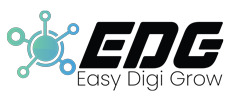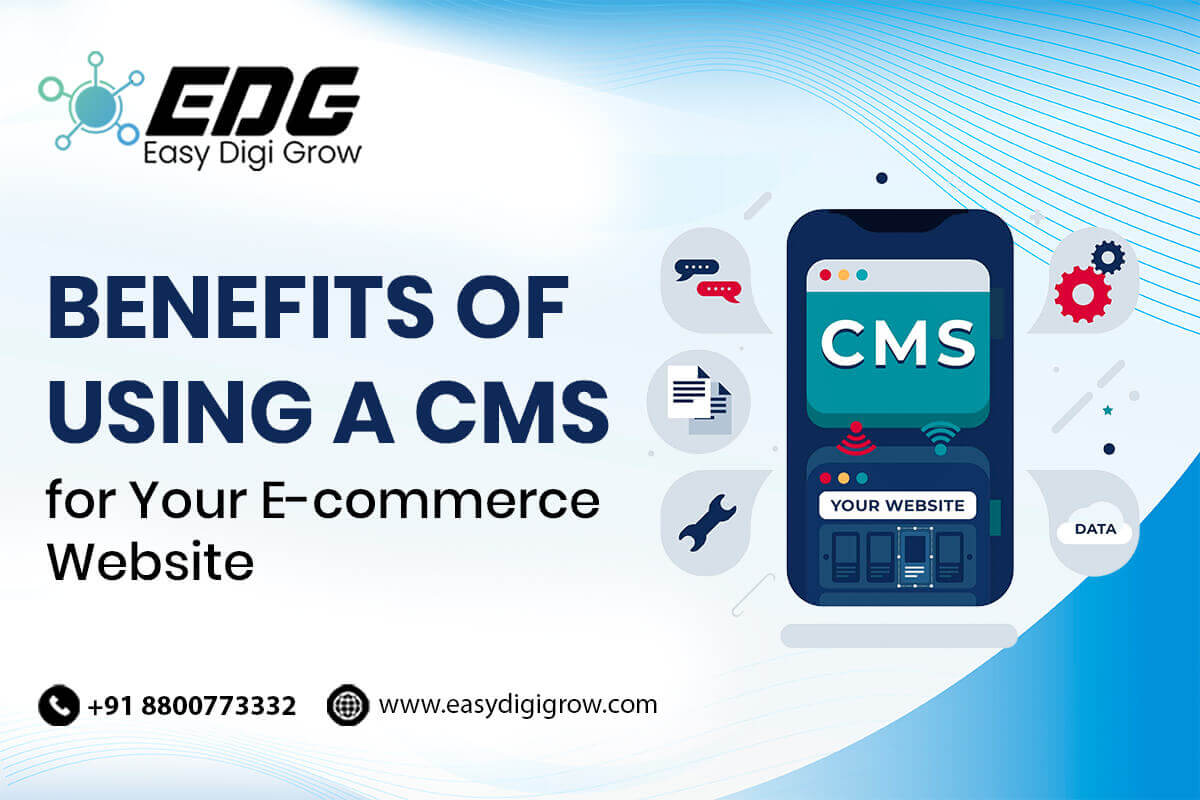In today’s fast-changing digital age, e-commerce websites are extremely important for every business that is trying to expand its reach and increase revenue. Building a strong e-commerce platform requires careful planning, and the most important thing is choosing the right content management system (CMS). A content management system (CMS) allows you to easily manage, edit, and scale your website.
In this blog, we will look at the top 5 benefits of utilizing a CMS for your e-commerce website and how they may help your company develop and prosper in today’s competitive industry.
What is an E-commerce CMS?
An eCommerce CMS is a platform that merges the functionality of a Content Management System (CMS) with the features of an eCommerce platform. This enables a company to manage its website content, products, inventories, and sales procedures from a single location. An e-commerce CMS enables organizations to create, update, and publish content as well as handle order processing, product management, and customer service.
Key Features of an E-commerce CMS
- User-Friendly Interface: An e-commerce CMS has an easy interface. Businesses can add products, update descriptions, and modify design features without requiring technical or coding knowledge.
- Product Management: The effective eCommerce CMS allows you to easily manage products by adding new ones, categorizing them, and verifying their availability in real-time.
- Inventory Control: Easy tracking of stock levels with integrated inventory management features that prevent over-selling and alert you when products are running low.
- Content Flexibility: A CMS allows you to add different types of content—such as blogs, landing pages, or product descriptions—that give your site a professional look and attract customers.
- Order Processing: Managing customer orders is streamlined, from payment processing to order tracking and shipping, all within the CMS.
Benefits of Using a CMS for Your E-commerce Website
Using a CMS offers numerous benefits, such as upgrading content to extremely advanced SEO tools, which will increase your chances of acquiring clients and growing sales. Here are a few important benefits:
- Easy Content Management
Managing content on an e-commerce website may be a difficult chore, especially when dealing with a huge inventory, product descriptions, blog entries, and updates. A Content Management System makes this process easier by providing user-friendly tools that enable anyone, regardless of technical expertise, to update content.
- No coding required: One of the most notable features of a CMS for e-commerce websites is its user-friendly interface. Business owners and their teams can manage content without prior coding experience.
- Quick Update: A CMS allows you to rapidly update product information, introduce new products, and make seasonal modifications. For example, it becomes easy to host flash sales or promote new products.
- Version Control: Many CMS platforms come with built-in version control, allowing you to revert to previous content versions if necessary.
Using a CMS for your e-commerce business allows you to effortlessly maintain your site, keeping it fresh and up to date, hence improving the consumer experience.
- SEO-friendly structure
Search engine optimization (SEO) is critical for the success of any e-commerce business. It helps drive organic traffic to your website, improving visibility and sales. A CMS for e-commerce websites frequently has built-in SEO tools, making site optimization significantly easier.
- Customizable URLs: A CMS lets you create SEO-friendly URLs for your product pages and blog posts. This allows search engines to better understand your website’s content and rank it higher.
- Meta Tags and Description: A CMS allows you to effortlessly add meta titles, descriptions, and keywords to each product or post. This is critical to ensuring that your content appears in relevant searches.
- Image Optimization: Apart from text, images have an important contribution to SEO. A CMS allows you to optimize images, including adding alt text, captions, and compressing files while maintaining quality, making your site load faster.
- Customizability and Scalability
A website should develop with your e-commerce business. A CMS for e-commerce is designed to grow with your company and provides unlimited customization options. Whether you are adding new product categories, expanding to new regions, or revamping the entire design, a CMS can handle these changes with ease.
- Custom Themes and Plugins: A CMS enables you to personalize your website with themes and plugins tailored to your specific requirements. For example, WordPress websites with WooCommerce extensions provide a variety of design themes and functionality plugins to help improve your e-commerce site.
- Scalability: As your product inventory develops, a CMS can handle more pages without affecting performance. Many CMS platforms are built to be scalable, allowing you to effortlessly handle hundreds of products as your business grows.
- API Integration: An e-commerce CMS enables someone to integrate third-party tools and applications into the website, such as payment gateways, shipping services, CRMs, and analytics tools, which would deliver a more complete and customer-centric experience.
A highly adjustable and scalable CMS enables you to respond quickly to shifting market trends, ensuring that your e-commerce website remains competitive.
- Enhanced Security Features
Security is a top responsibility for every e-commerce business, particularly when dealing with sensitive consumer data such as payment information. A CMS for e-commerce has advanced safety features to protect your website from cyber-attacks and provide your customers with a secure shopping experience.
- Regular Security Updates: Many CMS platforms, such as WordPress with WooCommerce integration, provide frequent security updates and fixes to keep your website secure from vulnerabilities.
- SSL Certificates: A CMS for e-commerce makes it simple to implement SSL certificates, ensuring that your site is encrypted and secure for transactions. SSL is extremely important for SEO, as search engines prefer secure websites.
- Two-Factor Authentication (2FA): Some CMS platforms include built-in two-factor authentication, which provides an additional layer of security to your admin panel.
- Security Plugins: In addition to inherent security capabilities, CMS platforms enable you to add plugins that improve security. These plugins can analyze your website for malware, prevent suspicious behavior, and offer real-time protection.
With a CMS, you can be confident that your e-commerce firm is secure, protecting both your company and your customers.
- Analytics and Reporting
To grow your e-commerce business, it’s essential to track your website’s performance, customer behavior, and sales data. A CMS for e-commerce websites usually comes with analytics and reporting tools, which provide useful information.
- Sales Reports: You can simply track daily, weekly, or monthly sales, allowing you to determine which goods are performing well and which require modifications.
- Customer Behavior Tracking: With integrated analytics tools, a CMS allows you to monitor customer behavior on your site — from the time spent on each page to the items added to the cart. This data can help you optimize your website’s layout and product offerings.
- Traffic Analysis: Determining where your traffic is coming from (e.g. organic search, social media, email marketing, etc.) can help optimize your marketing strategies.
- SEO Insights: Many CMS platforms offer SEO analytics, which reveals how well your website ranks for specific keywords and allows you to adjust your content strategy to improve visibility.
Using the analytics and reporting of a CMS, you can make informed decisions about how to make your e-commerce website better and grow properly.
Conclusion
Creating an e-commerce website using CMS will give you better ease of managing content, improved search engine optimization, and increased security. A CMS’s versatility, scalability, and user-friendly interface make it an excellent alternative for organizations of all sizes, particularly those seeking to expand their online presence.
A CMS for e-commerce offers benefits such as quick customization, solid security features, and powerful analytics, allowing you to stay ahead of the competition and create an amazing shopping experience for your customers. Whether you’re just starting or expanding your business, investing in the right CMS is a strategic move that will help you achieve long-term success.
If you’re ready to take your e-commerce website to the next level, start exploring CMS platforms that suit your needs, and watch your online business flourish.
 seolounge
seolounge



